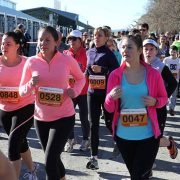Movement Snacks
 Most of us think we need to sweat it out at the gym or go for a long run to be active and if we miss those opportunities due to our busy lives, we beat ourselves up. What counts as exercise has been institutionalised to the point that if it’s not a dedicated chunk of time in a dedicated place, it doesn’t count. There are a lot of ‘should’s’ going on – I should exercise, I should go to the gym. It’s these ‘should’s’ that can set us up to fail, over and over again. Sound familiar?
Most of us think we need to sweat it out at the gym or go for a long run to be active and if we miss those opportunities due to our busy lives, we beat ourselves up. What counts as exercise has been institutionalised to the point that if it’s not a dedicated chunk of time in a dedicated place, it doesn’t count. There are a lot of ‘should’s’ going on – I should exercise, I should go to the gym. It’s these ‘should’s’ that can set us up to fail, over and over again. Sound familiar?
At Ritualize, we want to challenge the notion of what being active is and change how we view exercise.
What’s important is you find something you enjoy, not something you ‘should’ be doing. The research is showing that if you enjoy your choice of activity, you are more likely to stick with the healthy behaviour over the long-term.
A great way to rewire your brain around what counts as exercise is to discover what we call Movement Snacks. If you don’t like exercise or are simply too busy to get to a gym class, you will be surprised how active you can be throughout the day. Some suggested Movement Snacks are:
- Housework (it counts!)
- Meet for a coffee and a walk rather than sit in a cafe
- 30 second on the stop sprint
- Gardening
- Running around with the kids
- Squat while brushing your teeth
- Have a walking meeting rather than in a boardroom
- Walk while you talk on the phone
- Park the car in the furthest car park from the shops
- Ritualize ZUU workout at home
Of course, if you love your gym classes or your runs, keep doing it. I love to run because it makes me feel good, but if you are someone who doesn’t like it, don’t do it. Choose something you actually enjoy.
I love this approach to how we think about physical activity because it allows those who think they are not active to discover they either are or they can be.
Think about what Movement Snacks can be incorporated into your daily life and make them count.



 There are fixed, heritable genes (such as skin and eye colour) and there are genes that can be influenced daily according to our lifestyle. These genes are continually directing the production of proteins that control how your body functions at every second of the day. Genes turn on or off (sometimes at a rapid rate) only in response to signals they receive from the surrounding environment – signals that you provide based on the food you eat, the exercise you do (or don’t do!), your quality of sleep, sun exposure and so on. Genes are like light switches that turn on and off and influence every element of body function. So, you are in the driver’s seat to take control of your genes expression. Here are some tips for you:
There are fixed, heritable genes (such as skin and eye colour) and there are genes that can be influenced daily according to our lifestyle. These genes are continually directing the production of proteins that control how your body functions at every second of the day. Genes turn on or off (sometimes at a rapid rate) only in response to signals they receive from the surrounding environment – signals that you provide based on the food you eat, the exercise you do (or don’t do!), your quality of sleep, sun exposure and so on. Genes are like light switches that turn on and off and influence every element of body function. So, you are in the driver’s seat to take control of your genes expression. Here are some tips for you:
